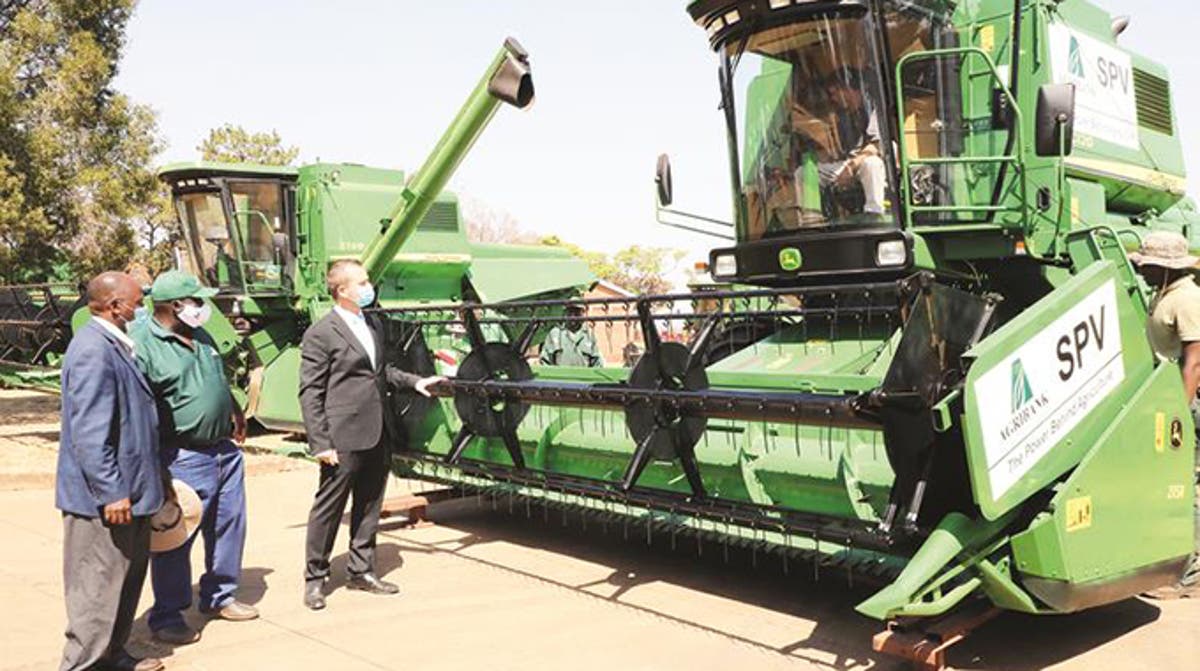Agric sector geared to produce more for industrialisation
THE agriculture sector is geared to contribute towards industrialisation of the economy through increased raw material production for local consumption and exports, a senior Government official has said.
Agriculture is the mainstay of the country’s economy and feeds into the agro-processing value chain, which has the potential to employ many people.
However, over the years, weak farm output due to climate change-induced droughts and limited financing, has seen the country importing food and key raw materials to cover the deficit.
“We have to find ways to contribute towards industrialisation of the agricultural sector. As a sector we have to produce as much raw materials as possible in order to reduce imports and also export some of the raw materials,” said Mrs Dorcas Matsinyengwa, who is acting director for Strategic Policy Planning, Implementation, Monitoring and Evaluation in the Ministry of Lands, Agriculture, Water and Rural Resettlement.
She said the more the sector produces, the more it can contribute towards formal job creation, regional and international integration, food security and poverty reduction.
Mrs Matsinyengwa was speaking during a Matabeleland South provincial consultative meeting in Gwanda this week.
The ministry is holding consultative meetings nationwide on the development of the agricultural education, extension, research policy and agriculture marketing which will feed into the national agriculture policy framework.
The national agriculture policy framework for the year 2020-2030 seeks to, among other issues, contribute towards attainment of an upper middle-income economy by 2030.
The agriculture and food systems transformation strategy is critical under Vision 2030. The framework also seeks to create an enabling environment for increased flow of investment towards enhancing agricultural production, productivity, resilience and sustainable resource management to ensure food and nutrition security. The policy formulation process was launched in February but was delayed by the Covid-19 pandemic.
Mrs Matsinyengwa said the drafting of the policy follows the realisation that there were poor linkages between agricultural research, extension and education.
“We want key stakeholders to contribute towards the development process as we want it to follow a bottom up approach whereby every stakeholder should contribute meaningfully to the process.
“There was no policy that linked agriculture education with extension and research which left the sectors fragmented,” she said.
“We want to have a co-ordinated approach where agriculture education, extension and research address industry needs. Our agriculture colleges should link closely with research and also teach students what is expected in the industry.
Mrs Matsinyengwa said the agriculture sector’s contribution towards the nation’s GDP was around 10 to 12 percent but used to be more than 20 percent. She said under Vision 2030 the sector was expected to contribute at least 18 percent towards the GDP.
Mrs Matsinyengwa said once consultative meetings were concluded in all provinces, they will come up with a draft policy document, which will help in the drive to achieve vision 2030 and realisation of the $8,2 billion target by 2025.
She said some of the key issues raised by stakeholders from Matabeleland South Province included the need to scale up research, extension and development. The province is also advocating for the establishment of more research institutions in the area. Stakeholders also called for capacity building in livestock production, investment in artificial insemination and need to address issues around range land management, pricing and marketing of cattle.
They also called for funding of agricultural research and innovation programmes and fully capacitating existing agricultural colleges. — -chronicle.o.zw










